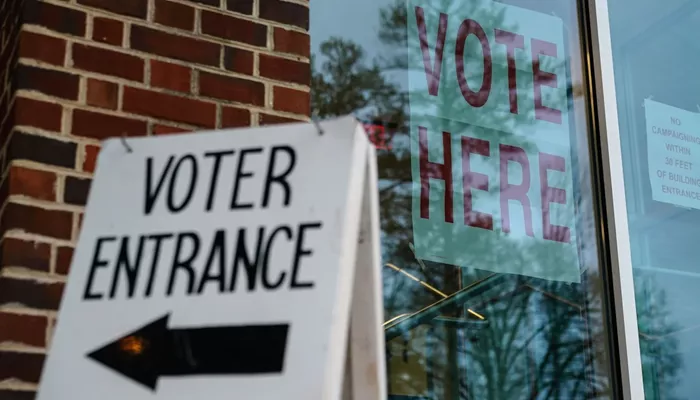CNN — House Republicans are considering a government shutdown as leverage to address concerns about noncitizens voting in U.S. elections. With government funding set to expire on September 30, House Speaker Mike Johnson, following former President Donald Trump’s social media calls, is advocating for a temporary spending bill linked with new voter registration requirements.
Johnson proposes that the temporary spending bill include a provision mandating proof of citizenship for all U.S. voters. This proposal faces significant hurdles, as it lacks sufficient support within the House and is expected to be opposed by Democrats.
On Tuesday, Johnson discussed the proposed legislation, known as the SAVE Act, on CNN’s “The Lead.” He highlighted state audits revealing noncitizens on voter rolls, especially in pivotal states like Pennsylvania, Ohio, and Georgia. Johnson claimed these issues could potentially disrupt elections.
“We’ve seen evidence of noncitizens on voter rolls, particularly in key swing states,” Johnson told CNN’s Jake Tapper. He also mentioned Texas, citing instances of undocumented immigrants attempting to register.
Critics argue that noncitizens voting is already illegal and that existing deterrents, such as prosecution and deportation risks, effectively prevent it. States routinely verify voter registrations against Department of Motor Vehicles and Social Security files. Reviews typically show minimal instances of noncitizen voting.
David Becker, founder of the Center for Election Innovation & Research, noted that regular reviews often find errors but not widespread noncitizen voting. “In a country with over 330 million people, minor glitches are inevitable,” Becker explained.
Texas In Texas, a state with nearly 18 million voters, Governor Greg Abbott recently reported over 6,500 “potential” noncitizens on the voter rolls. However, fewer than 2,000 have a voting history. These cases have been referred for investigation, but no illegal voting accusations have been made. A 2019 review had falsely suggested 95,000 noncitizens on the rolls. This was later corrected when it was revealed many individuals had become citizens.
Secretary of State Jane Nelson confirmed that Texans must provide a driver’s license or Social Security number to register, arguing that the system is effective. Becker added that states have found virtually no noncitizens voting, with Texas identifying only 0.03% possible noncitizens.
Ohio Ohio’s recent review of its 8 million registered voters led to the removal of 154,995 inactive registrations. Of the 597 cases referred for review, only 138 were found to have cast ballots. Secretary of State Frank LaRose, who supports proof of citizenship for voter registration, has not charged anyone with illegal voting. He argues that even rare instances of noncitizen voting are significant due to the close nature of many elections.
Georgia Georgia’s first citizenship review of its 7 million voter rolls in 2022 found 1,634 registrations pending verification, with none associated with actual votes. Secretary of State Brad Raffensperger supports additional verification measures.
Pennsylvania In Pennsylvania, a glitch from 2006 to 2017 allowed some noncitizens to register to vote. At least 168 unauthorized individuals may have been registered in Philadelphia during this period. The state has since addressed the issue.
Other States In Kansas, a 2020 law requiring proof of citizenship was overturned by a federal court. The law aimed to re-register over 30,000 voters but was based on a finding of only 39 noncitizens. The court cited administrative errors as the primary cause.
The conservative Heritage Foundation has documented 25 cases of voter fraud involving citizenship issues over the past 20 years, highlighting the rarity of such occurrences.
While House Republicans push for stringent voter registration requirements, evidence of widespread noncitizen voting remains limited. As the debate continues, the impact of such measures on election integrity and voter rights remains a key point of contention.


